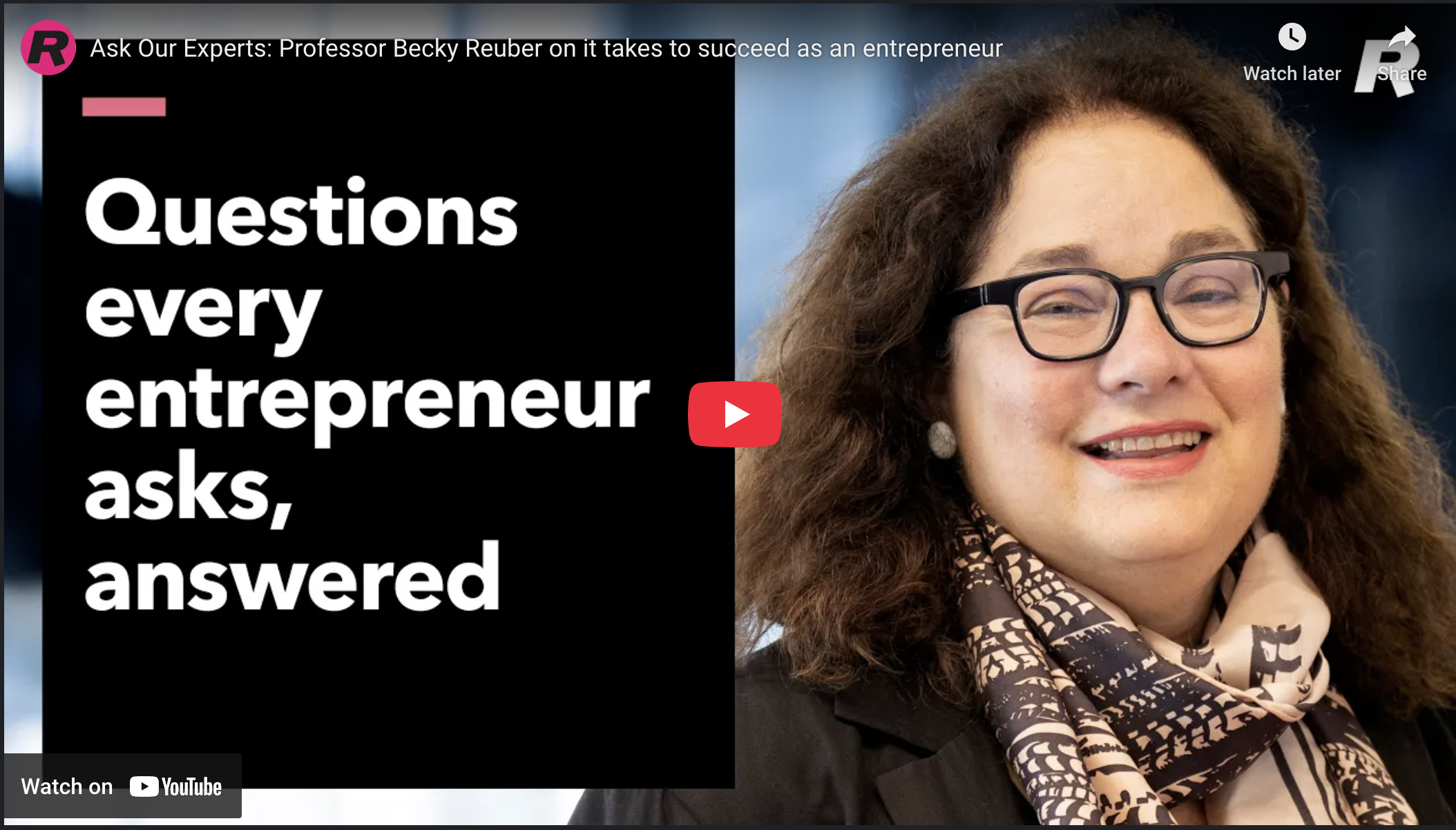Question 1: “I’ve built my business, I’m making a profit, now people are telling me I have to go global. Where’s the playbook for that?”
Why go global?
Small Market: Canada’s domestic market is relatively small, so expanding internationally can enhance growth potential.
Misconceptions about “Going Global”:
Most businesses aren’t truly global; they typically operate in just a few foreign markets.
Even global brands (Facebook, LinkedIn) aren’t universally active everywhere.
No universal playbook:
- Expansion strategies depend heavily on the product/service.
- Standardized products (e.g., medical devices): Easier to scale globally due to uniform application.
- Example: Hospitals globally use medical devices similarly, simplifying market entry.
- Consumer-oriented or culturally sensitive products require a market-specific approach.
- Example: Marketing or launching services/products needs to be adapted to local consumer preferences.
Question 2: “What does a venture capitalist do and how is that different from an angel investor? Should I just apply to Shark Tank?”
Angel Investors:
- High-net-worth individuals, typically former/current entrepreneurs.
- Invest due to personal interest, experience, and mentoring startups.
- Less structured, more personal, less formal.
Venture Capitalists (VCs):
- Institutional investors managing funds from various sources.
- Highly structured, formalized investment process.
- Profit-driven, require high returns.
- May replace management to boost returns.
Shark Tank (TV Show):
- Similar to Angel investors (high-net-worth individuals investing personal funds).
- Beyond funding, offers publicity and marketing exposure.
- Many businesses appear without securing funding but benefit from exposure.
Question 3: “What’s the biggest mistake new businesses face as they look to grow?”
Three common mistakes:
- Insufficient cash flow:
– Growth requires significant cash; companies often underestimate necessary working capital.
- Not being selective about new customers:
– Not all customers align with company strategy; taking unsuitable customers can distract resources and dilute focus.
- Neglecting HR/interpersonal issues:
– Rapid growth introduces complexities (e.g., new senior hires causing internal friction).
– Many growing companies introduce a formal HR function to manage complexity at this stage.
Question 4: “I’ve asked an AI tool to create my business plan. What could go wrong?”
- AI-generated plans lack critical hands-on insights.
- Entrepreneurs relying on AI miss important learning opportunities regarding customer and market interactions.
- Over-reliance on AI might lead to misunderstanding the complexities of running a business.
- AI should assist, not replace, entrepreneurial thinking and practical market validation.
⸻
Question 5: “What’s the biggest mistake new businesses face as they look to grow?”
There isn’t a single “biggest mistake,” but several common ones:
- Cash flow mismanagement.
- Not choosing appropriate customers strategically.
- Ignoring or mismanaging human resources/interpersonal dynamics.
- Introducing formal HR becomes critical at growth stages to handle interpersonal conflicts professionally.
⸻
Question 6: “My business isn’t profitable after 5 years—is it time to quit?”
No fixed rule on profitability timing.
- Examples (e.g., Dropbox took 10+ years to reach profitability).
Assess:
- Investor interest/support.
- Personal fulfillment and motivation.
- Long-term vision viability.
- If lacking external investor interest, founder motivation, or personal satisfaction, reconsider continuation.
⸻
Question 7: “How do you even start a business if your passion isn’t directly business-related (e.g., watching old TV shows like Friends)?”
- Starting a business demands substantial work beyond passion alone.
- While passion helps sustain effort, businesses often emerge from solving real-world problems or market opportunities.
- Passion in leisure activities doesn’t automatically translate into a successful business unless paired with market demand or viable monetization strategies.
⸻
Question 8: “Do you need to be in Silicon Valley to succeed?”
- Silicon Valley advantages include deep digital-tech expertise and strong networks.
- Successful businesses emerge globally; Silicon Valley isn’t mandatory.
- Key factors in location choice:
- Personal network strength.
- Proximity to target customers.
- Availability of skilled talent.
- Toronto, for instance, offers talent, growth opportunities, and lower competition than Silicon Valley.
⸻
Question 9: “Can anyone be an entrepreneur, or is it personality-dependent?”
- No single “entrepreneurial personality” required.
- Successful entrepreneurs share traits that apply broadly:
- Persistence.
- Strong work ethic.
- Resourcefulness.
- Effective interpersonal skills.
- Traits common to entrepreneurs—discipline, resilience, creativity—are also valuable across professions.
⸻
Summary of Key Insights:
- Global Expansion: Tailor your approach; no universal playbook exists.
- Investors: Angels are less structured/personal, VCs formal/profit-driven, Shark Tank primarily visibility and angel-style funding.
- Growth Mistakes: Cash flow, selective customer acquisition, HR management are crucial growth-stage concerns.
- AI in Entrepreneurship: Use cautiously as a tool, not as a substitute for market learning and strategic thinking.
- Profitability Timeline: Evaluate beyond a rigid timeline; profitability can take longer.
- Starting a Business: Passion is beneficial but insufficient alone; practicality and market opportunities matter more.
- Location: Not limited to Silicon Valley; choose based on talent, customers, and network.
- Entrepreneurial Traits: Successful entrepreneurship depends more on consistent behaviors than personality types.
